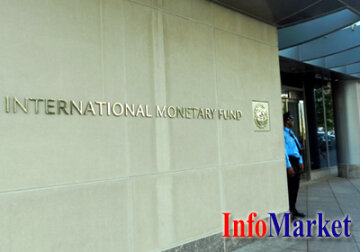
Risks of a decline in economic growth in Moldova are high and strongly tilted towards the deterioration of the situation - the IMF.
This is stated in the materials of the International Monetary Fund, released after the completion of the IMF Executive Board’s second assessment of the implementation of the financing program for Moldova. As noted, the country's energy security remains threatened by further disruptions in gas and electricity supplies, given its dependence on supplies from Russia, Ukraine and the Transnistrian region. Although alternative sources of supply have been identified to compensate for the current shortfall, higher and more volatile energy prices, as well as damage to the distribution infrastructure caused by the war in Ukraine, pose serious risks in the near future. Fund experts point out that the duration of recent shocks and the outlook for the energy sector are highly uncertain. Prolonged or additional energy shocks could worsen Moldova's economic prospects, leading to pressure on the budget and balance of payments, lower consumption and reduced output. If inflationary pressures intensify, confidence deteriorates further, or additional external shocks arise, economic policy trade-offs could become even more difficult. Social unrest over the cost of living and political discontent over political decisions could also upset Moldova's fragile sociopolitical equilibrium. Further escalation of the war, leading to an increased influx of refugees into Moldova, could put additional pressure on the state budget. The IMF materials note that Moldova's official authorities have shared the Fund's assessment of macroeconomic prospects and risks, acknowledging the importance of robust contingency planning that has so far helped deal with major shocks. They foresee a greater than previously anticipated impact of the war on the Moldovan economy and recognize the possibility of increased risks in the near future. The authorities are also concerned about security risks. They see supporting the most vulnerable citizens as a short-term priority, given the skyrocketing cost of living, although formulating policies remains very challenging due to significant capacity constraints. The authorities also agree that closely monitoring developments in the energy sector and continuing to build contingency reserves are key, given the unprecedented uncertainties. IMF experts stress that the multiple shocks caused by the war require clear policy design, coordination and implementation. IMF analysts note that fiscal policy should remain focused on protecting those most vulnerable to energy and cost-of-living crises while maintaining fiscal sustainability. Monetary policy should remain flexible and focused on containing domestic sources of inflation and limiting the secondary effects of external shocks. Continued close monitoring of risks and maintaining strong reserves will help maintain financial sector stability. Progress in governance and institutional reforms will help lay a solid foundation for strong and inclusive growth. // 16.01.2023 - InfoMarket.







